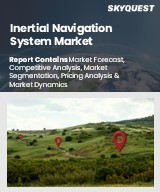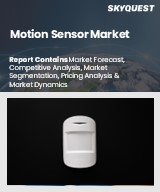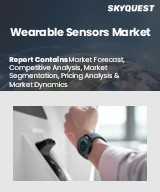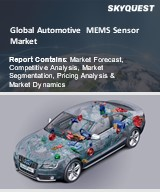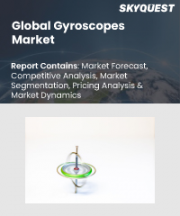
|
시장보고서
상품코드
1734937
자이로스코프 시장 : 제품 유형별, 기술별, 축별, 용도별, 최종 사용자별, 지역별 분석, 예측(-2032년)Gyroscope Market Forecasts to 2032 - Global Analysis By Product Type, Technology, Axis, Application, End User and By Geography |
||||||
Stratistics MRC에 따르면 자이로스코프 세계 시장은 2025년에 32억 달러, 예측 기간 동안 CAGR은 7.7%를 나타내고 2032년에는 54억 달러에 이를 것으로 예측됩니다.
자이로스코프는 각운동량의 원리를 이용하여 방위를 유지하도록 설계된 정밀기기입니다. 자이로스코프는 항공기, 잠수함, 스마트폰 등의 관성유도에 있어 중요한 역할을 하고 있습니다.
국제로봇연맹에 따르면 중국은 2013년 이후 세계 최대 산업용 로봇 시장의 지위를 유지하고 있으며, 2022년에는 설치 대수 전체의 52%를 차지했습니다.
자율 주행 차량의 내비게이션 시스템 수요 증가
자율주행 기술의 진보에 따라, 원활한 차량 운행에는 정확한 방향과 안정성의 제어가 불가결해지고 있습니다. 자동차가 복잡한 환경에서 효과적으로 작동할 수 있게 해 줍니다. 또한 센서 퓨전 시스템에 통합하여 차량 전체의 응답성을 향상시키고 신뢰할 수 있는 실시간 포지셔닝을 가능하게 합니다.
전체 기능을 가속도계에 의존
자이로스코프가 각속도 측정을 제공하는 반면, 선형 운동을 정확하게 계산하기 위해서는 가속도계가 필요하며 다중 센서 시스템의 일부가 되고 있습니다. 또한 제조업체의 경우 통합 비용이 증가합니다. 또한 자이로스코프와 가속도 센서의 판독값 불일치는 교정 문제를 일으켜 동적 환경에서의 정확성에 영향을 줄 수 있습니다.
소형화 및 IoT 디바이스에 통합
미세 전기 기계 시스템(MEMS) 기술의 개발로 스마트 장치에 통합 할 수있는 작고 에너지 효율적인 자이로 센서를 개발할 수 있습니다. 킹과 스태빌라이제이션을 위해 점점 이러한 센서에 의존하고 있습니다.
네비게이션 시스템의 사이버 보안 위험
자동차, 항공기, 군사 시스템의 디지털 네비게이션에 대한 의존도가 높아짐에 따라 자이로 센서의 취약성이 사이버 위협에 노출될 수 있습니다. 잠재적인 해킹 위험으로 인해 신호가 중단되어 운영 정확도가 저하될 수 있습니다. 암호화, 안전한 펌웨어, AI 구동의 이상 검출을 통해 자이로스코프 기반의 네비게이션 기술을 보호하는 것은 보안상의 우려를 경감하는데 있어서 매우 중요합니다.
COVID-19의 영향 :
팬데믹은 공급망을 혼란시켜 생산 스케줄을 늦추고 디바이스의 가용성에 영향을 주어 자이로스코프 시장에 영향을 주었습니다.
광섬유 자이로 분야는 예측 기간 동안 최대가 될 전망
광섬유 자이로 분야는 탁월한 정확성과 신뢰성으로 인해 예측 기간 동안 최대 시장 점유율을 차지할 것으로 예측됩니다. 따라서 항공우주, 방위, 해저 네비게이션에 최적입니다.
예측 기간 동안 내비게이션 시스템 분야의 CAGR이 가장 높아질 전망
예측 기간 동안 네비게이션 시스템 분야는 자율 운송 및 스마트 이동성 솔루션의 진보에 견인되어 가장 높은 성장률을 나타낼 것으로 예측됩니다. 정밀 항법에 대한 수요가 증가함에 따라 자이로스코프는 GPS 시스템, 무인 차량, 항공우주 장비에 통합되고 있습니다. AI로 강화된 네비게이션 기술의 지속적인 연구가 성장을 더욱 향상시키고 최신 네비게이션 프레임워크에서 자이로스코프의 중요성이 강화되었습니다.
가장 점유율이 높은 지역
예측 기간 동안 북미는 항공우주, 방위 및 자율 주행 차량 기술에 대한 왕성한 투자로 최대 시장 점유율을 차지할 것으로 예측됩니다. 뿐만 아니라 주요 산업 기업의 존재와 정부 지원 방어 이니셔티브는 자이로스코프 시장에서 북미의 우위를 강화하고 있습니다.
CAGR이 가장 높은 지역 :
예측기간 중 아시아태평양은 급속한 산업자동화와 소비자용 전자기기의 진보로 가장 높은 CAGR을 보여줄 것으로 예측되고 있습니다.
사용자 정의 무료 제공:
이 보고서를 구독하는 고객은 다음 무료 맞춤설정 옵션 중 하나를 사용할 수 있습니다.
- 기업 프로파일
- 추가 시장 기업의 종합적 프로파일링(3개사까지)
- 주요 기업의 SWOT 분석(3개사까지)
- 지역 세분화
- 고객의 관심에 응한 주요국 시장 추정, 예측 및 CAGR(주 : 타당성 확인에 따름)
- 경쟁 벤치마킹
- 제품 포트폴리오, 지리적 존재, 전략적 제휴에 기반한 주요 기업 벤치마킹
목차
제1장 주요 요약
제2장 서문
- 개요
- 이해관계자
- 조사 범위
- 조사 방법
- 데이터 마이닝
- 데이터 분석
- 데이터 검증
- 조사 접근
- 조사 자료
- 1차 조사 자료
- 2차 조사 정보원
- 전제조건
제3장 시장 동향 분석
- 성장 촉진요인
- 억제요인
- 기회
- 위협
- 제품분석
- 기술 분석
- 용도 분석
- 최종 사용자 분석
- 신흥 시장
- COVID-19의 영향
제4장 Porter's Five Forces 분석
- 공급기업의 협상력
- 구매자의 협상력
- 대체품의 위협
- 신규 참가업체의 위협
- 경쟁 기업간 경쟁 관계
제5장 세계의 자이로스코프 시장 : 제품 유형별
- MEMS 자이로스코프
- 광섬유 자이로스코프
- 링 레이저 자이로스코프
- 동적 조정 자이로스코프
- 진동 구조 자이로스코프
- 반구 공진기 자이로스코프
제6장 세계의 자이로스코프 시장 : 기술별
- 기계
- 광학
- MEMS 베이스
- 진동 구조
제7장 세계의 자이로스코프 시장 : 축별
- 단축 자이로스코프
- 2축 자이로스코프
- 3축 자이로스코프
- 다축 자이로스코프
제8장 세계의 자이로스코프 시장 : 용도별
- 소비자 일렉트로닉스
- 네비게이션 시스템
- 공업제조업
- 산업용 로봇
- 무인기
- 기타 용도
제9장 세계의 자이로스코프 시장 : 최종 사용자별
- 항공우주 및 방어
- 자동차
- 해양
- 헬스케어
- 석유 및 가스
- 기타 최종 사용자
제10장 세계의 자이로스코프 시장 : 지역별
- 북미
- 미국
- 캐나다
- 멕시코
- 유럽
- 독일
- 영국
- 이탈리아
- 프랑스
- 스페인
- 기타 유럽
- 아시아태평양
- 일본
- 중국
- 인도
- 호주
- 뉴질랜드
- 한국
- 기타 아시아태평양
- 남미
- 아르헨티나
- 브라질
- 칠레
- 기타 남미
- 중동 및 아프리카
- 사우디아라비아
- 아랍에미리트(UAE)
- 카타르
- 남아프리카
- 기타 중동 및 아프리카
제11장 주요 발전
- 계약, 파트너십, 협업, 합작투자
- 인수와 합병
- 신제품 발매
- 사업 확대
- 기타 주요 전략
제12장 기업 프로파일링
- Analog Devices Inc.
- Dynalabs
- EMCORE Corporation
- Honeywell International Inc.
- InnaLabs
- InvenSense, Inc.
- Kionix, Inc.
- KVH Industries, Inc
- MEMSIC Inc.
- MicroStrain Inc.
- Murata Manufacturing Co. Ltd
- NV Robert Bosch GmbH
- Northrop Grumman LITEF GmbH
- NXP Semiconductors
- Robert Bosch GmbH
- Sensonsor AS
- STMicroelectronics NV
- Vectornav Technologies LLC
According to Stratistics MRC, the Global Gyroscope Market is accounted for $3.2 billion in 2025 and is expected to reach $5.4 billion by 2032 growing at a CAGR of 7.7% during the forecast period. Gyroscope is a precision instrument designed to maintain orientation by leveraging the principles of angular momentum. It consists of a spinning rotor, which resists external forces and retains its axis of rotation despite movement. Widely used in navigation, aerospace, and stabilization systems, gyroscopes enhance accuracy in motion sensing applications. They play a critical role in inertial guidance for aircraft, submarines, and smartphones. Advancements in MEMS technology have led to miniaturized gyroscopes, improving performance in consumer electronics and autonomous systems.
According to the International Federation of Robotics, China has maintained its position as the world's largest industrial robot market since 2013, accounting for 52% of total installations in 2022.
Market Dynamics:
Driver:
Rising demand for navigation systems in autonomous vehicles
As self-driving technology advances, precise orientation and stability control become essential for seamless vehicle operation. Gyroscopes enhance navigation accuracy by maintaining directional stability, enabling autonomous vehicles to function effectively in complex environments. Additionally, their integration into sensor fusion systems improves overall vehicular responsiveness, ensuring reliable real-time positioning.
Restraint:
Dependence on accelerometers for full functionality
While gyroscopes provide angular velocity measurements, they require accelerometers to compute linear movement accurately, making them part of multi-sensor systems. This dependency adds complexity to navigation solutions and can lead to higher integration costs for manufacturers. Additionally, discrepancies between gyroscope and accelerometer readings may cause calibration challenges, affecting precision in dynamic environments.
Opportunity:
Miniaturization and integration into IoT devices
Advances in microelectromechanical systems (MEMS) technology have enabled the development of compact, energy-efficient gyroscopic sensors that can be embedded in smart devices. Wearables, drones, and industrial automation systems increasingly rely on these sensors for motion tracking and stabilization. The expansion of IoT ecosystems across consumer electronics, healthcare, and logistics sectors is further driving innovation in gyroscopic technology.
Threat:
Cybersecurity risks in navigation systems
As vehicles, aircraft, and military systems become more reliant on digital navigation, vulnerabilities in gyroscopic sensors can expose them to cyber threats. Potential hacking risks may lead to signal disruptions, compromising operational accuracy. Safeguarding gyroscope-based navigation technologies through encryption, secure firmware, and AI-driven anomaly detection is crucial to mitigating security concerns.
Covid-19 Impact:
The pandemic influenced the gyroscope market by disrupting supply chains and delaying production schedules, impacting device availability. However, increased demand for automation and smart technologies during post-pandemic recovery efforts stimulated growth. The rising adoption of robotics, drones, and remote monitoring solutions further drove the need for gyroscopic precision in various applications.
The fiber optic gyroscopes segment is expected to be the largest during the forecast period
The fiber optic gyroscopes segment is expected to account for the largest market share during the forecast period due to its superior precision and reliability. Fiber optic gyroscopes leverage optical interference to deliver highly accurate rotational measurements, making them ideal for aerospace, defense, and submarine navigation. Their resistance to mechanical wear and high sensitivity further enhance their applications in demanding environments, solidifying their market leadership.
The navigation systems segment is expected to have the highest CAGR during the forecast period
Over the forecast period, the navigation systems segment is predicted to witness the highest growth rate driven by advancements in autonomous transportation and smart mobility solutions. As demand for precision navigation grows, gyroscopes are being integrated into GPS systems, unmanned vehicles, and aerospace instruments. Continuous research in AI-enhanced navigation technologies is further boosting growth, reinforcing the significance of gyroscopes in modern navigation frameworks.
Region with largest share:
During the forecast period, the North America region is expected to hold the largest market share driven by robust investments in aerospace, defense, and autonomous vehicle technologies. Leading manufacturers and research institutions in the region are actively developing high-performance gyroscopic solutions for navigation and motion tracking applications. Additionally, the presence of key industry players and government-backed defense initiatives reinforce North America's dominance in the gyroscope market.
Region with highest CAGR:
Over the forecast period, the Asia Pacific region is anticipated to exhibit the highest CAGR attributed to rapid industrial automation and advancements in consumer electronics. Countries such as China, Japan, and South Korea are increasingly adopting gyroscopic technologies for smart mobility and IoT applications. The expansion of automotive manufacturing, coupled with investments in smart infrastructure, is driving regional market growth.
Key players in the market
Some of the key players in Gyroscope Market include Analog Devices Inc., Dynalabs, EMCORE Corporation, Honeywell International Inc., InnaLabs, InvenSense, Inc., Kionix, Inc., KVH Industries, Inc., MEMSIC Inc., MicroStrain Inc., Murata Manufacturing Co. Ltd, N.V. Robert Bosch GmbH, Northrop Grumman LITEF GmbH, NXP Semiconductors, Robert Bosch GmbH, Sensonsor AS, STMicroelectronics NV and Vectornav Technologies LLC.
Key Developments:
In April 2025, Honeywell announced a strategic collaboration with Lockheed Martin to co-develop advanced inertial navigation systems (INS) integrating Honeywell's HG4930 MEMS gyroscopes with AI-based signal correction algorithms.
In March 2025, KVH Industries unveiled its new P-1775 IMU (Inertial Measurement Unit), featuring next-gen fiber-optic gyroscope (FOG) technology with enhanced thermal stability and reduced bias drift.
In February 2025, Analog Devices launched its new high-precision MEMS gyroscope model ADXRS6500, specifically engineered for aerospace, defense, and industrial-grade navigation systems.
Product Types Covered:
- MEMS Gyroscopes
- Fiber Optic Gyroscopes
- Ring Laser Gyroscopes
- Dynamically Tuned Gyroscopes
- Vibrating Structure Gyroscopes
- Hemisphere Resonator Gyroscopes
Technologies Covered:
- Mechanical
- Optical
- MEMS-based
- Vibrating Structure
Axis Covered:
- Single-Axis Gyroscope
- Dual-Axis Gyroscope
- Three-Axis Gyroscope
- Multi-Axis Gyroscope
Applications Covered:
- Consumer Electronics
- Navigation Systems
- Industrial Manufacturing
- Industrial Robotics
- Unmanned Vehicles
- Other Applications
End Users Covered:
- Aerospace & Defense
- Automotive
- Marine
- Healthcare
- Oil & Gas
- Other End Users
Regions Covered:
- North America
- US
- Canada
- Mexico
- Europe
- Germany
- UK
- Italy
- France
- Spain
- Rest of Europe
- Asia Pacific
- Japan
- China
- India
- Australia
- New Zealand
- South Korea
- Rest of Asia Pacific
- South America
- Argentina
- Brazil
- Chile
- Rest of South America
- Middle East & Africa
- Saudi Arabia
- UAE
- Qatar
- South Africa
- Rest of Middle East & Africa
What our report offers:
- Market share assessments for the regional and country-level segments
- Strategic recommendations for the new entrants
- Covers Market data for the years 2024, 2025, 2026, 2028, and 2032
- Market Trends (Drivers, Constraints, Opportunities, Threats, Challenges, Investment Opportunities, and recommendations)
- Strategic recommendations in key business segments based on the market estimations
- Competitive landscaping mapping the key common trends
- Company profiling with detailed strategies, financials, and recent developments
- Supply chain trends mapping the latest technological advancements
Free Customization Offerings:
All the customers of this report will be entitled to receive one of the following free customization options:
- Company Profiling
- Comprehensive profiling of additional market players (up to 3)
- SWOT Analysis of key players (up to 3)
- Regional Segmentation
- Market estimations, Forecasts and CAGR of any prominent country as per the client's interest (Note: Depends on feasibility check)
- Competitive Benchmarking
- Benchmarking of key players based on product portfolio, geographical presence, and strategic alliances
Table of Contents
1 Executive Summary
2 Preface
- 2.1 Abstract
- 2.2 Stake Holders
- 2.3 Research Scope
- 2.4 Research Methodology
- 2.4.1 Data Mining
- 2.4.2 Data Analysis
- 2.4.3 Data Validation
- 2.4.4 Research Approach
- 2.5 Research Sources
- 2.5.1 Primary Research Sources
- 2.5.2 Secondary Research Sources
- 2.5.3 Assumptions
3 Market Trend Analysis
- 3.1 Introduction
- 3.2 Drivers
- 3.3 Restraints
- 3.4 Opportunities
- 3.5 Threats
- 3.6 Product Analysis
- 3.7 Technology Analysis
- 3.8 Application Analysis
- 3.9 End User Analysis
- 3.10 Emerging Markets
- 3.11 Impact of Covid-19
4 Porters Five Force Analysis
- 4.1 Bargaining power of suppliers
- 4.2 Bargaining power of buyers
- 4.3 Threat of substitutes
- 4.4 Threat of new entrants
- 4.5 Competitive rivalry
5 Global Gyroscope Market, By Product Type
- 5.1 Introduction
- 5.2 MEMS Gyroscopes
- 5.3 Fiber Optic Gyroscopes
- 5.4 Ring Laser Gyroscopes
- 5.5 Dynamically Tuned Gyroscopes
- 5.6 Vibrating Structure Gyroscopes
- 5.7 Hemisphere Resonator Gyroscopes
6 Global Gyroscope Market, By Technology
- 6.1 Introduction
- 6.2 Mechanical
- 6.3 Optical
- 6.4 MEMS-based
- 6.5 Vibrating Structure
7 Global Gyroscope Market, By Axis
- 7.1 Introduction
- 7.2 Single-Axis Gyroscope
- 7.3 Dual-Axis Gyroscope
- 7.4 Three-Axis Gyroscope
- 7.5 Multi-Axis Gyroscope
8 Global Gyroscope Market, By Application
- 8.1 Introduction
- 8.2 Consumer Electronics
- 8.3 Navigation Systems
- 8.4 Industrial Manufacturing
- 8.5 Industrial Robotics
- 8.6 Unmanned Vehicles
- 8.7 Other Applications
9 Global Gyroscope Market, By End User
- 9.1 Introduction
- 9.2 Aerospace & Defense
- 9.3 Automotive
- 9.4 Marine
- 9.5 Healthcare
- 9.6 Oil & Gas
- 9.7 Other End Users
10 Global Gyroscope Market, By Geography
- 10.1 Introduction
- 10.2 North America
- 10.2.1 US
- 10.2.2 Canada
- 10.2.3 Mexico
- 10.3 Europe
- 10.3.1 Germany
- 10.3.2 UK
- 10.3.3 Italy
- 10.3.4 France
- 10.3.5 Spain
- 10.3.6 Rest of Europe
- 10.4 Asia Pacific
- 10.4.1 Japan
- 10.4.2 China
- 10.4.3 India
- 10.4.4 Australia
- 10.4.5 New Zealand
- 10.4.6 South Korea
- 10.4.7 Rest of Asia Pacific
- 10.5 South America
- 10.5.1 Argentina
- 10.5.2 Brazil
- 10.5.3 Chile
- 10.5.4 Rest of South America
- 10.6 Middle East & Africa
- 10.6.1 Saudi Arabia
- 10.6.2 UAE
- 10.6.3 Qatar
- 10.6.4 South Africa
- 10.6.5 Rest of Middle East & Africa
11 Key Developments
- 11.1 Agreements, Partnerships, Collaborations and Joint Ventures
- 11.2 Acquisitions & Mergers
- 11.3 New Product Launch
- 11.4 Expansions
- 11.5 Other Key Strategies
12 Company Profiling
- 12.1 Analog Devices Inc.
- 12.2 Dynalabs
- 12.3 EMCORE Corporation
- 12.4 Honeywell International Inc.
- 12.5 InnaLabs
- 12.6 InvenSense, Inc.
- 12.7 Kionix, Inc.
- 12.8 KVH Industries, Inc
- 12.9 MEMSIC Inc.
- 12.10 MicroStrain Inc.
- 12.11 Murata Manufacturing Co. Ltd
- 12.12 N.V. Robert Bosch GmbH
- 12.13 Northrop Grumman LITEF GmbH
- 12.14 NXP Semiconductors
- 12.15 Robert Bosch GmbH
- 12.16 Sensonsor AS
- 12.17 STMicroelectronics NV
- 12.18 Vectornav Technologies LLC








